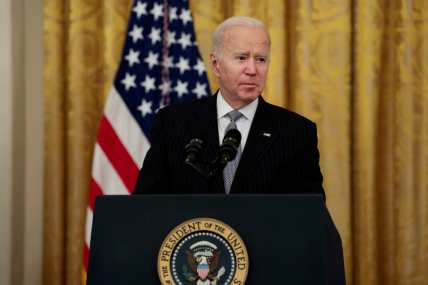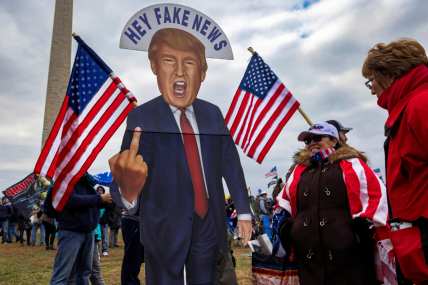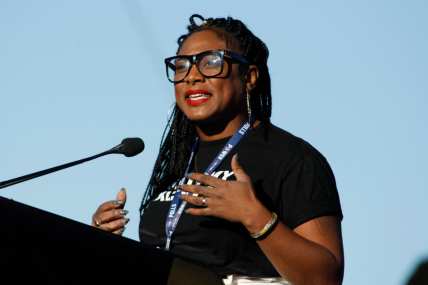Yes, it’s OK for Democrats to criticize Democratic politicians
OPINION: Critiquing Democratic candidates and even a Democratic president is not only acceptable but required in a functioning democracy.

Editor’s note: The following article is an op-ed, and the views expressed are the author’s own. Read more opinions on theGrio.
The Republican Party has become a cult. Members of the party reject democracy, embrace thuggery and purge anyone in the party who stands up to the cult leader. This is what happens when a political party remakes itself in the image of one politician and refuses to acknowledge that person’s flaws, and it’s why Democrats must avoid that fate as well.
For the most part, Democrats are much too intellectually and ideologically independent to allow themselves to fall for Trump-style fascism. But there is an anxious contingent that has tried to police intraparty criticism.
I get it. Faced with a historic and existential crisis to democracy, many people are understandably apprehensive of anything that might allow Republicans to gain power by driving a wedge between various factions of Democrats. That was the point that former Pennsylvania Governor Ed Rendell made to me during the 2020 Democratic primaries whenever I critiqued Joe Biden on CNN. Democrats “don’t want to see Democrats attacking each other,” Rendell argued—a rule he ignored two months later when he slammed Democratic Senator Elizabeth Warren in an op-ed.
I see the rules differently. I think Democrats critiquing Democratic candidates and even a Democratic president is not only acceptable but required in a functioning democracy. Criticizing doesn’t mean promoting the false narrative that both parties are the same. It does mean holding the people we elect accountable.
I felt the same way when Barack Obama was president. I attended law school with Obama, donated to his campaigns, voted for him twice and supported many of his policies. But when I disagreed with him on major issues—his early opposition to same-sex marriage, his drone policy, his deportation of immigrants, his decision to remove the public option from the Affordable Care Act—I was criticized by some Democrats for doing so.
It happened with Bill Clinton, too. I worked for Clinton in the White House, but I have expressed disagreement with him on capital punishment, welfare reform, the crime bill and his decision to sign the anti-gay Defense of Marriage Act. I’m a lifelong Democrat, but Black voters don’t owe absolute allegiance to any president or politician.
Each actor in our democracy plays a unique role. The president’s job is to move a political agenda. Members of Congress are tasked with passing legislation. Voters engage by electing officials. And activists push the officials to do more.
The president has a difficult job trying to balance competing interests, but our role as Black people is to assert our interests, not to play defense for Joe Biden, Barack Obama or any president, regardless of party or race.
Throughout American history, the push for racial justice has often been “inconvenient” for presidential agendas. When Martin Luther King Jr. wanted to use the 1963 March on Washington to build pressure on Congress and “dramatize a shameful condition,” President John F. Kennedy expressed serious doubts. “We want success in the Congress, not just a big show at the Capitol,” he told civil rights leaders. But as King wrote in his 1963 Letter from a Birmingham Jail, “freedom is never voluntarily given by the oppressor; it must be demanded by the oppressed.”
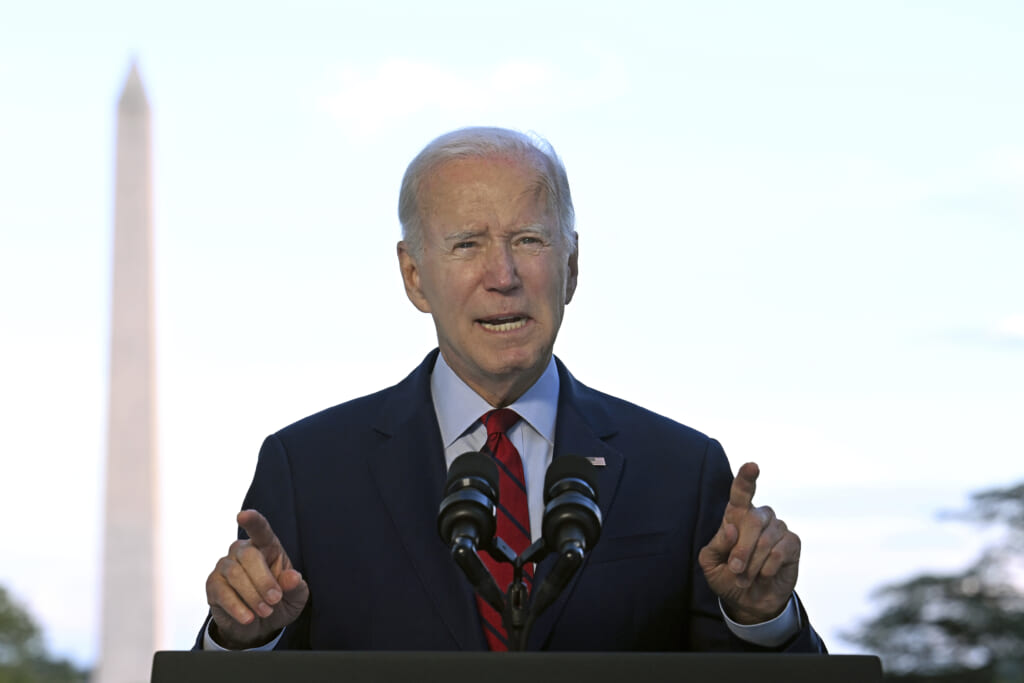
After Kennedy’s assassination, President Lyndon Johnson would go on to sign the Civil Rights Act of 1964, the Voting Rights Act of 1965, and the Fair Housing Act of 1968, not despite the pressure from activists but because of it.
Abolitionist Frederick Douglass understood the same lesson in 1857 when he delivered an emancipation speech warning that “power concedes nothing without a demand.” It would take a Civil War and a different assassination before the country finally ratified constitutional amendments that abolished slavery, guaranteed equal protection of the laws and gave Black men the right to vote.
In more recent years, President Obama managed demands from LGBTQ voters pushing for marriage equality before he “evolved” in 2012, and President Biden has faced Black demands for police reform. There’s nothing wrong with citizens making any of these demands. The role of the activist is to push, and the role of the politician is to respond.
Politicians tend to be cautious creatures and rarely respond by embracing ideas that move ahead of public opinion. The activist’s job, on the other hand, is not to follow public opinion but to shape it. Dr. King described this as the difference between “a thermometer that recorded the ideas and principles of popular opinion” and a “thermostat that transformed the mores of society.” If you want to shape public opinion toward social justice, you can’t just be a thermometer, and you can’t be afraid to criticize any politician who stands in the way.
The election of President Biden illustrates the point. The criticism he received from Democrats during the 2020 campaign helped him become a stronger candidate by responding to the legitimate concerns of voters in his own base. If Biden hadn’t felt pressure from Black voters, he might not have picked a Black woman to be his vice president or a Black woman as his first Supreme Court nominee.
That pressure surely contributed to Biden’s appointment of federal judges, 68 percent of whom have been Black (28 percent), Hispanic (22 percent) or Asian American (18 percent), more than any president in history. Pressure also pushed the Biden administration to extend a federal eviction moratorium last summer after Rep. Cori Bush slept on the steps of the U.S. Capitol to protest the expiration of the law.
The Black agenda remains unfinished. Yes, Biden signed the Emmett Till Antilynching Act this past spring, but Congress has failed to pass a police reform bill, a voting rights bill or a bill to study reparations. Supporters of these bills shouldn’t stop pushing, even when it’s inconvenient for the Democratic Party. In fact, the inconvenient times may be the best moments to negotiate concessions from politicians because that’s when activists have the most leverage.
We know that Republicans will exploit any intraparty criticism of Democratic leaders to try to suppress Black people from voting at all, which is not a solution. But Democrats are on the verge of some major victories heading into November, even after a year of criticism.
A new legislative package gaining traction will invest in slowing climate change, lower the cost of prescription drugs, and raise corporate taxes. This follows unexpected Senate support for bills to codify same-sex marriage and protect the right to choose to have a child. The Justice Department has indicated that it is investigating Donald Trump’s efforts to overturn the 2020 election. And even voters in the conservative state of Kansas have decided to protect the right to abortion.
In addition, President Biden recently abandoned an inexplicable deal to nominate an anti-abortion judge in Kentucky, proposed a prisoner swap to bring back WNBA star Brittney Griner from Russia and is reportedly considering a plan to cancel student loan debt for millions of Americans.
The point here is that pressure works. Black voters should not be afraid to use our pressure to get what we want from the candidates we elect. True, we won’t get everything, but we’ll get nothing if we remain silent.
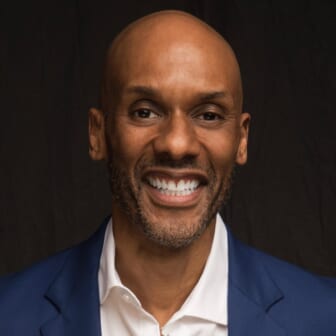
Keith Boykin is the author of five books, including “Race Against Time: The Politics of a Darkening America.”
TheGrio is FREE on your TV via Apple TV, Amazon Fire, Roku, and Android TV. Please download theGrio mobile apps today!
More About:Opinion
